How to sell fire damage home

How to Sell Fire Damaged House Quickly and Easily
If you’re looking to sell fire damaged house, you may feel overwhelmed. This article provides clear steps to assess damage, explore your selling options, and navigate the entire process efficiently.
Key Takeaways
Understanding the state and extent of fire damage is crucial for determining the selling strategy and market value of the property.
Homeowners can choose to sell their fire-damaged house as-is, make repairs, or work with real estate investors, each option having its own advantages and considerations.
Legal disclosure of fire damage is mandatory in many jurisdictions, making transparency essential to protect both sellers and buyers during the sales process.
Understanding Fire Damaged Houses
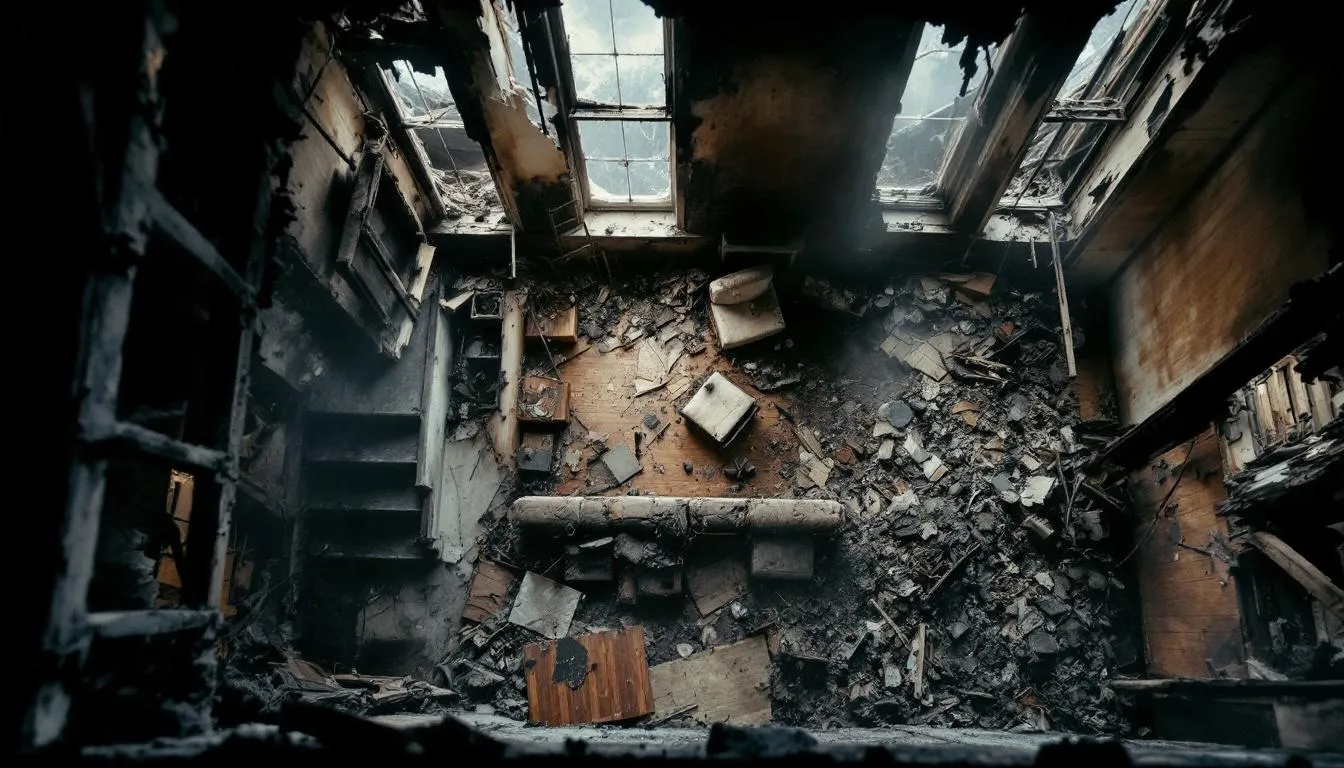
A fire damaged house with fire damage is a property that has suffered damage from a fire incident, which can range from minor smoke damage to severe structural issues. The impact of fire damage on a property can be extensive, affecting not just the structure but also the emotional and financial wellbeing of the homeowners, including those who have experienced a burned house.
Understanding the complexities and challenges associated with fire damaged properties is the first step in navigating the selling process. This section will delve into what constitutes a fire damaged house and the common challenges faced when selling such properties.
What is a Fire Damaged House?
A fire damaged house is a property that has been affected by a fire, leading to various levels of damage. This damage can include:
Minor smoke damage
Severe structural issues that compromise the integrity of the home
Structural problems
Smoke residue
Water damage resulting from firefighting efforts.
Understanding the extent of damage is crucial for determining the best course of action, whether that involves selling the house as-is or making necessary repairs to restore it.
Common Challenges in Selling Fire Damaged Properties
Selling fire damaged properties presents several challenges that can complicate the selling process. Fire damage significantly decreases a home’s market value, with the severity of the damage impacting how much less it sells for compared to its pre-fire value. Buyers often fear potential future problems stemming from fire damage, leading to lower offers and a stigma associated with such properties. If you need to sell a fire damaged property, understanding these challenges is crucial.
Additionally, sellers face difficulties attracting conventional buyers, resulting in a limited pool of interested purchasers. The emotional and financial stress of selling a fire damaged home can be a daunting task, making it crucial to seek professional advice and support.
Options for Selling a Fire Damaged House
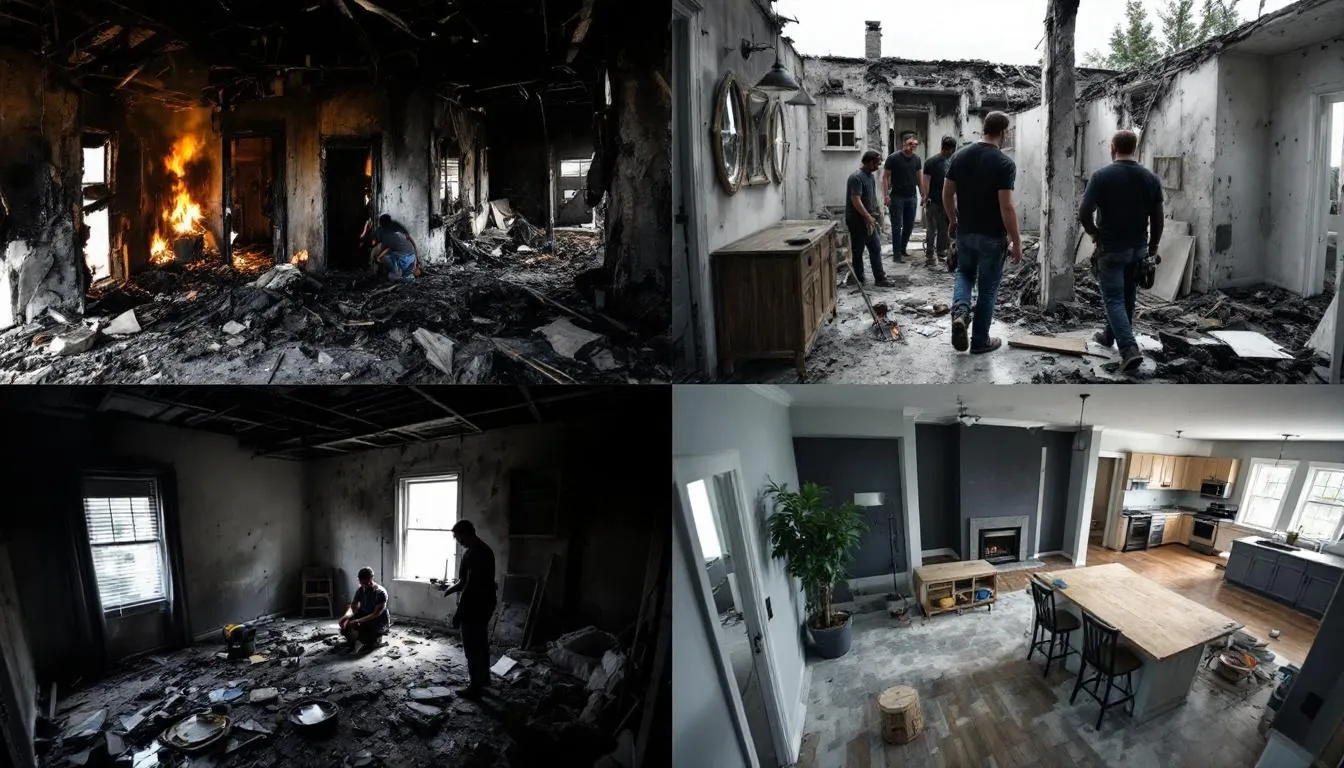
Homeowners have multiple options when selling a fire-damaged house. It’s important to evaluate each choice carefully. These include selling the house as-is, making repairs before selling, and working with real estate investors. Each option has its own set of benefits and drawbacks, and the best choice depends on factors such as the extent of the damage, the homeowner’s financial situation, and the current real estate market.
This section will explore these options in detail, helping you make an informed decision about the best way to sell your fire damaged property.
Selling As-Is
Selling a house as-is can be a quick and hassle-free process, offering several benefits to homeowners:
Avoid repair costs and lengthy sales processes.
Receive cash offers within 24 hours, providing quick access to funds.
Eliminate the need for repairs that could exceed the property’s value, reducing the homeowner’s burden.
While selling as-is avoids repair hassles, it often results in lower offers reflecting the home’s compromised status in its as is condition. However, the convenience and speed of this option can make it an attractive choice for many homeowners.
Repairing Before Selling
Repairing fire damage before selling can lead to significant repairs that significantly influence the home’s marketability and selling price. Restoration costs can vary, often ranging from a few thousand to tens of thousands of dollars.
When deciding whether to repair or sell as-is, several factors need to be taken into account. These include the homeowner’s financial situation, timeline, and the state of the current real estate market. Making necessary repairs can potentially increase the home’s market value and attract more buyers, but it requires careful evaluation of the costs and effort involved.
Working with Real Estate Investors
Working with real estate investors can be a beneficial option for selling fire damaged homes because:
Investors typically buy fire damaged houses without requiring repairs first, providing a simpler and quicker selling process.
They can negotiate the purchase and complete transactions without the need for an agent.
They offer cash offers tailored to the property’s current condition.
Selling to investors allows for quick cash offers without the lengthy negotiations common in traditional sales. Highlighting the unique aspects of your fire damaged home to investors can improve your chances of receiving a favorable offer.
Steps to Sell Your Fire Damaged House
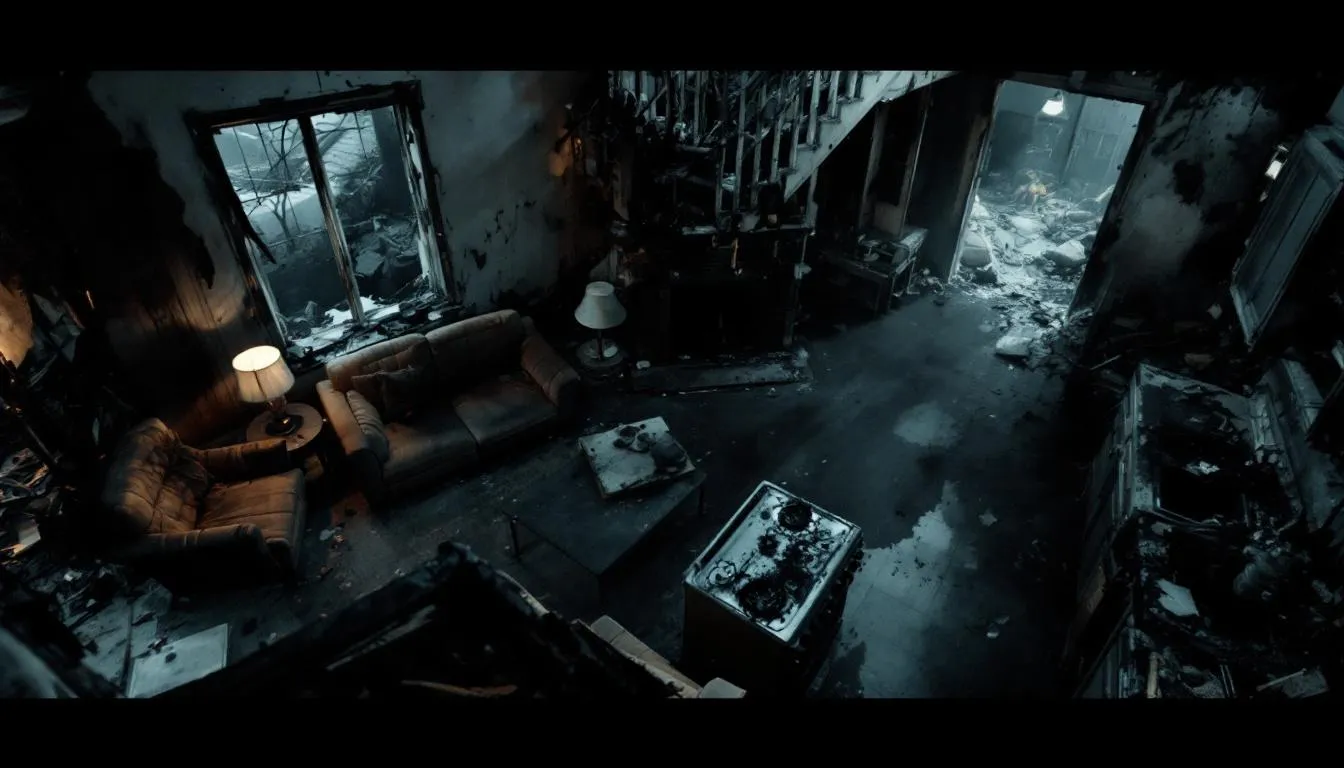
Selling a fire damaged house involves several essential steps that can significantly influence the success of the sale. These steps include assessing the damage, documenting the damage, and obtaining a fair cash offer. Prompt actions after a fire can make a substantial difference in the selling process.
Coordinating move-out and property handover is the final step after selling a fire damaged house. This section will provide a detailed guide on each of these steps to help you navigate the selling process effectively.
Assess the Damage
Assessing the damage is a crucial first step in selling a fire-damaged house. It is essential to:
Have a professional inspection to identify both visible and hidden damages.
Hire a professional inspector or contractor with experience in fire damage assessment to evaluate the property.
Be aware that hidden damage from fires can include structural issues and smoke damage that may not be immediately visible.
Cleaning up after a fire involves licensed professionals and includes steps like removing chemicals, soot, and odors. Having professionals clean a fire-damaged home is essential to prevent further damage, such as mold infestation.
Document the Damage
Documenting fire damage is crucial for insurance claims and disclosing damage to potential buyers. Having detailed records of fire extinguishers can streamline the selling process. Additionally, compliance with building codes enhances efficiency.
While assessing fire damage, document everything with photos and videos to have a comprehensive record. After cleaning the fire-damaged house, take pictures and a video walkthrough to capture its state.
To support your insurance claim, include detailed photos, notes, and an official report from the fire marshal. Sharing before and after photos of repairs can help reassure buyers and show the value of the property.
Obtain a Fair Cash Offer
To obtain a fair cash offer for a fire-damaged property:
Reach out to cash buying companies via their websites or phone numbers.
Understand that cash buyers typically provide offers tailored to the current condition of the fire-damaged property.
You can close on a fire-damaged property sale in as little as 7-10 days.
Payment can be received as quickly as 7 days.
Consulting a fire damage restoration contractor can provide insights into the necessary repairs and their costs, aiding in price setting. This approach ensures a quick and efficient sale, providing immediate access to funds.
The Role of Insurance in Selling Fire Damaged Homes
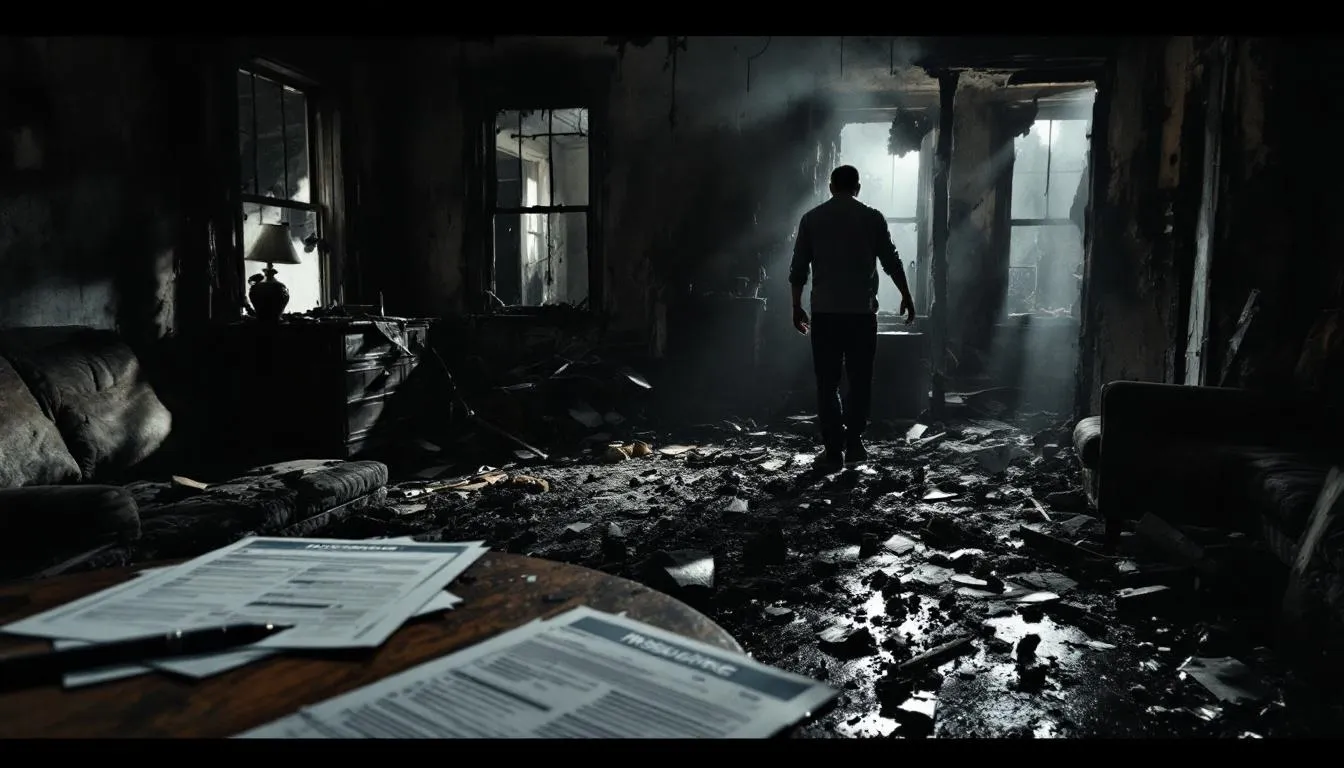
Insurance plays a critical role in selling fire damaged homes, influencing the financial recovery process. Homeowners should file an insurance claim immediately after a house fire and work with an insurance adjuster to assess the damage.
Insurance coverage for fire-damaged homes typically includes benefits such as actual cash value and replacement cost coverage. Negotiating for the highest possible insurance payout involves documenting all damage thoroughly and understanding the specifics of the insurance policy.
This section will delve into the steps for filing an insurance claim, understanding insurance coverage, and negotiating payouts.
Filing an Insurance Claim
After a fire damages your home, follow these steps:
Contact your insurance company to start the claims process.
Call the insurance company to request an adjuster who will help evaluate the damage and understand your coverage.
Notify your insurance carrier about any sales process to allow them to carry out necessary investigations.
Before starting restoration work, ensure you contact your insurance adjuster to avoid jeopardizing your claim. This proactive approach ensures a smoother claims process and maximizes the potential for adequate compensation.
Understanding Insurance Coverage
Most fire insurance policies cover fire damage unless exceptions like arson or negligence apply. Home sellers may be entitled to the actual cash value of their property even if they decide not to rebuild after a fire.
Thorough documentation, including maintaining detailed records of repairs and changes made post-fire, is essential. Understanding the coverage provided by your insurance policy can help you navigate the compensation process and ensure you receive the benefits you are entitled to.
Negotiating Insurance Payouts
To strengthen your case against low settlement offers, consider the following steps:
Gather comprehensive evidence of damages and associated costs.
Understand your insurance policy details.
Document the damage thoroughly.
Be prepared to argue for adequate compensation.
Negotiating for the highest possible insurance benefits payout involves these important actions.
Consulting with a fire investigator and fire damage restoration contractor can provide valuable insights and support in this negotiation process, ensuring you receive a fair payout to cover repair costs and other associated expenses.
Legal Considerations When Selling Fire Damaged Property
Selling a fire damaged property involves several legal considerations to ensure compliance and protect both the seller and the buyer. These include:
Disclosing fire damage
Navigating liability issues
Working with a real estate attorney Understanding local laws and regulations is essential for legal compliance when selling properties with fire damage.
This section will explore the importance of disclosing fire damage, handling liability issues, and the benefits of engaging a real estate attorney.
Disclosing Fire Damage
In many jurisdictions, sellers are legally required to disclose fire damage that has occurred in the property, irrespective of repairs done. Transparency about fire damage is crucial for building trust with potential buyers and ensures that they are fully informed about the property.
Failure to disclose fire damage can lead to legal issues and financial repercussions for the seller, underscoring the importance of honesty in the selling process.
Navigating Liability Issues
Liability for fire damage can be explicitly stated in the sale agreement, ensuring the buyer understands they are accepting the property as is. When selling a fire damaged house, understanding liability issues is crucial for protecting both the seller and the buyer.
Using clear and specific language in the sales contract regarding fire damage helps to avoid future disputes and ensures proper liability transfer. This clarity protects the seller from potential claims and clarifies the buyer’s responsibilities.
Working with a Real Estate Attorney
Engaging a real estate attorney is crucial for understanding the legal complexities involved in selling a fire damaged home. A real estate attorney helps clarify legal obligations that sellers must meet, particularly regarding the disclosure of fire damage. Hiring a real estate attorney can mitigate risks by ensuring that sellers comply with all regulations and avoid potential legal issues.
Consulting with a real estate agent and a real estate attorney ultimately provides peace of mind and can lead to a smoother selling process.
Advantages of Selling to Cash Buyers
Selling to a cash buyer offers several advantages, including quick sales, flexibility, and eliminating the need for repairs. Cash buyers are often flexible with move-out timelines and provide fair offers tailored to the seller’s situation, leading to a successful sale. House buyers can also benefit from these advantages.
The cash buying process allows homeowners to sell their fire damaged homes as-is, avoiding the common headaches associated with traditional sales. This section will highlight the benefits of selling to cash buyers, focusing on quick cash offers, no repairs needed, and covering closing costs.
Quick Cash Offers
Selling to cash buyers offers several advantages:
Immediate cash offers that allow quick access to funds without financing delays.
Ability to close on a sale typically within a week to 30 days, providing a rapid resolution for homeowners.
Offers for fire damaged houses are usually free, no obligation cash offer, allowing sellers to explore their options without pressure. Additionally, a free cash offer can provide further insight into potential sales.
This swift process helps homeowners avoid the lengthy and uncertain traditional sales process, making it a highly convenient option.
No Repairs Needed
One of the significant advantages of selling to cash buyers is that no repairs are needed. Cash buyers often purchase properties without requiring any renovations, allowing sellers to avoid the uncertainties of repair timelines and costs.
Selling a fire-damaged house as-is can simplify the selling process significantly, providing peace of mind and ensuring a quick sale. This method is particularly beneficial for those who lack the funds or time to make necessary repairs.
Covering Closing Costs
Many cash buyers cover all the closing costs, allowing sellers to retain more of the sale proceeds. When selling a fire damaged house, closing costs can significantly affect the net proceeds from the sale. This coverage reduces the financial burden on sellers, making the selling process smoother and more advantageous.
Ultimately, having cash buyers pay for closing costs can lead to a more profitable sale for the seller, simplifying the financial recovery after a fire incident.
Preparing Your Fire Damaged Home for Sale
Preparing a fire damaged home for sale involves several critical steps to make the property appealing to potential buyers:
Homeowners can choose to sell fire-damaged houses as-is or make repairs before listing.
Maximize online presence.
List the property on forums and marketplaces.
Use high-quality photos to enhance the visibility of the fire damaged house.
This section will cover cleaning and debris removal, highlighting the potential of the property, and setting a competitive price.
Cleaning and Debris Removal
Hiring professionals for cleanup ensures thorough treatment of hazardous materials like soot and ash, which can pose health risks. Professional cleaners typically:
Use specialized equipment and techniques
Effectively remove soot
Eliminate smoke odors
Address water damage from firefighting efforts
Debris removal techniques employed by professionals include safe disposal of damaged materials and assessment of structural integrity to prevent further hazards. This step is crucial in making the property presentable and safe for potential buyers.
Highlighting Potential
Highlighting the potential of a fire damaged house can make it more attractive to potential buyers. Various methods include:
Selling as-is, which can provide a quicker sale and save on repair costs.
Making repairs before sale, which can potentially increase the home’s fair market value.
Working with real estate investors.
Preparing your fire damaged home for sale includes cleaning and conducting thorough repairs to attract buyers, and setting a competitive price based on market conditions and repair estimates. If you are looking to purchase fire damaged homes, it is essential to consider these factors.
Setting a Competitive Price
Setting a competitive price for a fire damaged house is crucial for attracting buyers amid a potentially limited market. Get an appraisal from a mortgage lender or work with a local realtor for an estimate to determine the value of a fire damaged house.
Consult a fire damage restoration contractor for detailed estimate repair costs on required repairs, which can range from a few thousand dollars to tens of thousands. When pricing the property, consider discounting the estimated repair costs from the fair market value to set a competitive price.
Emotional and Financial Impact of Selling a Fire Damaged Home
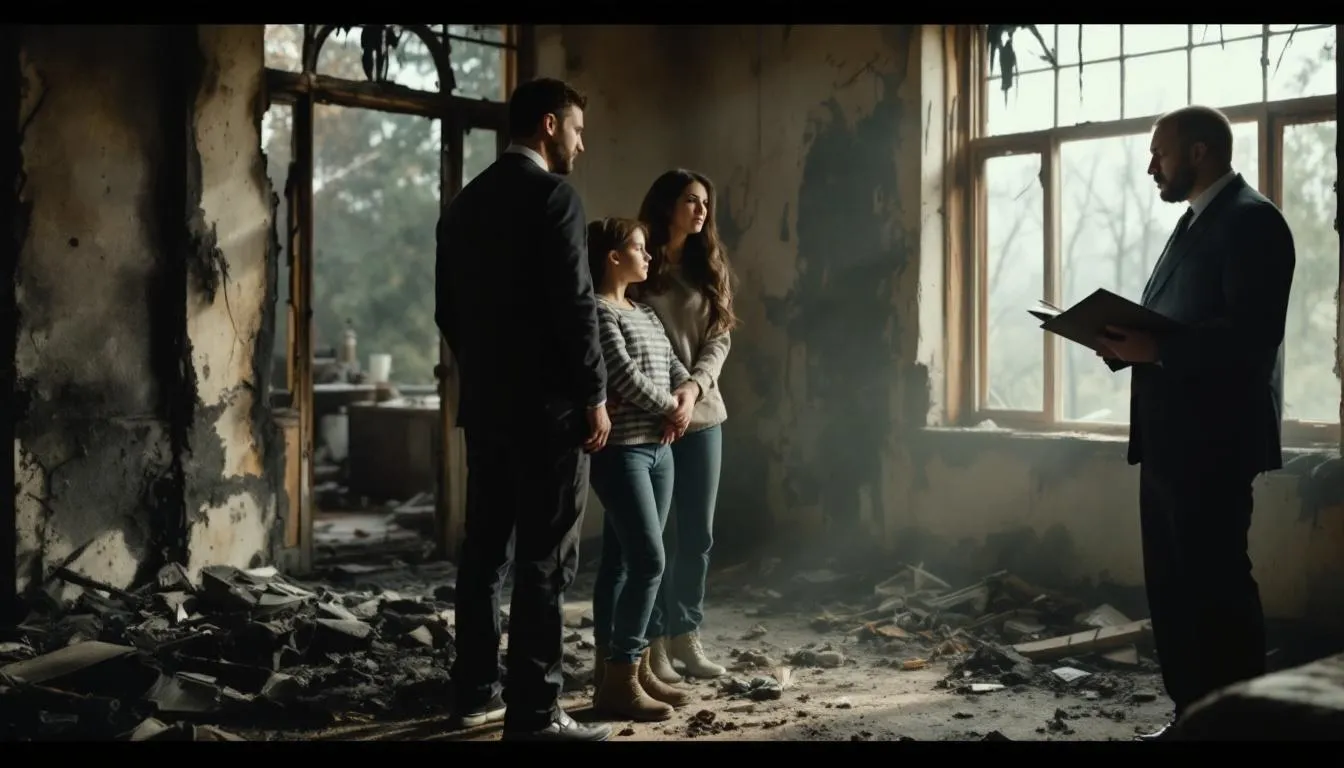
The emotional and financial impact of selling a fire damaged home can be profound. Immediate actions are crucial to address the situation after a house fire, and following guidelines can help navigate the complexities of selling effectively. Funds from selling a fire damaged house can be used for new housing and replacing essential items.
Sellers may encounter financial stress after a fire, which can complicate their situation. This section will address the emotional and financial aspects of selling a fire damaged home, providing tips for coping with stress and managing finances.
Coping with Emotional Stress
Living in a home that has suffered fire damage can provoke uncomfortable memories and feelings of distress. Emotional challenges faced after a house fire may include stress and trauma. The aftermath of a fire can lead to feelings of distress and anxiety, with family dynamics potentially strained and children experiencing increased anxiety and fear.
Having a support system is important when coping with the emotional challenges of selling a fire damaged house. Disaster relief services can provide mental health support and assistance in recovering important documents after a fire, including emergency shut off service and addressing electrical systems.
Summary
Selling a fire damaged house can be a challenging and emotional journey, but it is possible to navigate this process effectively with the right knowledge and support. From understanding fire damaged properties and exploring various selling options to taking essential steps and considering legal and emotional aspects, this guide has provided a comprehensive roadmap. By following these steps and seeking professional advice when needed, homeowners can successfully sell their fire damaged homes and move forward with their lives. Remember, every challenge presents an opportunity for a fresh start.
Frequently Asked Questions
What is a fire damaged house?
A fire damaged house is a property impacted by a fire, which can result in anything from minor smoke damage to significant structural problems. Understanding the extent of the damage is crucial for restoration and safety assessments.
What are the common challenges in selling fire damaged properties?
Selling fire-damaged properties often presents challenges such as reduced market value, buyer hesitance, and a smaller pool of potential buyers, which can add emotional and financial stress for the seller. Addressing these issues upfront can help streamline the sales process.
What are the options for selling a fire damaged house?
You can sell a fire damaged house as-is, invest in repairs prior to the sale, or collaborate with real estate investors who focus on such properties. Each option has its advantages depending on your situation.
Why should I consider selling to cash buyers?
Selling to cash buyers provides a fast and straightforward transaction, as they often make quick cash offers, eliminate the need for repairs, and may cover closing costs, simplifying the selling process. This can be especially beneficial if you're looking for efficiency and convenience.
How can I cope with the emotional stress of selling a fire damaged home?
Coping with the emotional stress of selling a fire-damaged home requires a strong support system and, if necessary, mental health support. Focus on the future and the new opportunities that can arise from this fresh start.



